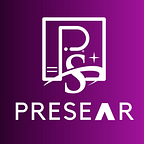Exploring Blockchain Technology: Beyond Cryptocurrencies
“Blockchain is the tech. Bitcoin is merely the first mainstream manifestation of its potential.”
- Marc Kenigsberg,
Founder of Bitcoin Chaser.
In recent years, blockchain technology has gained significant attention primarily due to its association with cryptocurrencies like Bitcoin and Ethereum. However, blockchain has the potential to revolutionize various industries beyond the realm of digital currencies. This blog aims to explore the diverse applications of blockchain technology and shed light on its transformative potential across different sectors.
Understanding Blockchain Technology
Blockchain is a decentralized and distributed ledger technology that enables the secure and transparent recording of transactions. It operates on a network of computers, known as nodes, which collectively maintain the integrity and consensus of the data stored on the blockchain. Key features of blockchain include immutability, transparency, security, and decentralization.
Blockchain Beyond Cryptocurrencies
Supply Chain Management:
Blockchain can enhance transparency and traceability in supply chains. By recording every transaction and movement of goods, it allows stakeholders to track the origins, manufacturing processes, and logistics of products. This enables businesses to verify authenticity, prevent counterfeit products, and ensure ethical sourcing.
Healthcare:
Blockchain can revolutionize healthcare by securely storing and sharing patient records, enabling interoperability between different healthcare providers. This would streamline processes, reduce medical errors, enhance data security, and empower patients to have greater control over their health data.
Voting Systems:
Blockchain-based voting systems can introduce transparency and trust in elections. By recording votes on an immutable ledger, it eliminates the possibility of fraud or tampering. Additionally, it can enable real-time vote counting, increasing efficiency and accuracy.
Intellectual Property:
Blockchain can simplify the process of registering and managing intellectual property rights. Smart contracts can automate the licensing and royalty payments, ensuring that creators receive fair compensation and reducing the need for intermediaries.
Financial Services:
Beyond cryptocurrencies, blockchain technology can transform traditional financial services. It can enable faster, more secure, and cost-effective cross-border transactions, streamline Know Your Customer (KYC) processes, facilitate smart contracts for lending and insurance, and enable decentralized and transparent peer-to-peer lending platforms.
Energy Sector:
Blockchain can facilitate the transition to a decentralized energy ecosystem. Through peer-to-peer energy trading, smart grids, and transparent tracking of renewable energy certificates, blockchain can optimize energy distribution, increase efficiency, and foster renewable energy adoption.
Challenges and Considerations
While blockchain technology holds immense potential, there are challenges to overcome. These include scalability concerns, energy consumption, regulatory frameworks, and interoperability between different blockchain networks. Addressing privacy concerns and ensuring data protection is crucial when implementing blockchain solutions.
Current Initiatives and Future Prospects
Numerous companies, governments, and consortia are actively exploring blockchain applications. For example, IBM is developing blockchain-based supply chain solutions, and Estonia has implemented blockchain for e-governance services. Additionally, advancements in technologies like sidechains, sharding, and consensus mechanisms hold promise for addressing scalability issues.
The future of blockchain technology looks promising, with its potential to revolutionize industries by providing transparency, security, and efficiency. As further research and development progress, we can expect to witness innovative use cases and transformative solutions across diverse sectors.
Now let’s have a look at some examples of companies that have implemented blockchain technology in their operations:
- JPMorgan Chase: JPMorgan Chase, one of the largest banks globally, has developed its own blockchain platform called Quorum. Quorum is an enterprise-grade blockchain platform that focuses on privacy and security. It has been utilized for various applications, including supply chain finance and creating digital currencies.
- IBM: IBM has been actively exploring blockchain technology and has developed several blockchain-based solutions. One of their notable initiatives is the Food Trust project, which aims to enhance transparency and traceability in the food supply chain. IBM is also involved in other blockchain projects, including trade finance, supply chain management, and digital identity verification.
- Walmart: As mentioned earlier, Walmart has partnered with IBM’s Food Trust project to track and trace the origin of food products. By using blockchain technology, Walmart can quickly identify the source of any contamination or quality issues, ensuring the safety and authenticity of its products.
Conclusion
Blockchain technology has emerged as a powerful tool beyond cryptocurrencies, offering solutions to long-standing challenges in various industries. Its potential to increase transparency, enhance security, streamline processes, and eliminate intermediaries makes it a disruptive force in today’s digital era. As blockchain continues to evolve, it is essential for businesses, governments, and individuals to explore and embrace its transformative potential, paving the way for a decentralized and trust-based future.
How to contact us?
- Visit our website — Our website should have a “Contact Us” page with our contact information.
- Look for contact information — Check our website for contact information such as email addresses, phone numbers, and physical addresses.
- Email or Call — Depending on the type of support you need, you can either email us or call our support team. Our contact information should be listed on our website.
- Social Media — You can also reach out to us via our social media pages such as Facebook, Twitter, or LinkedIn.
- Live Chat — We may have live chat support on our website, which can be a convenient way to get in touch with us quickly.
Feel free to contact us:
Email: support@presear.com
Whatsapp: 7008187611
